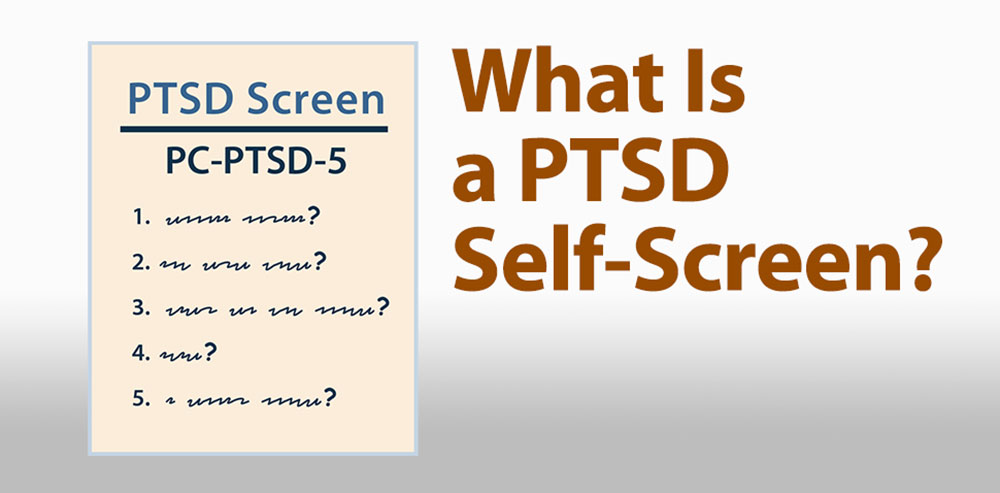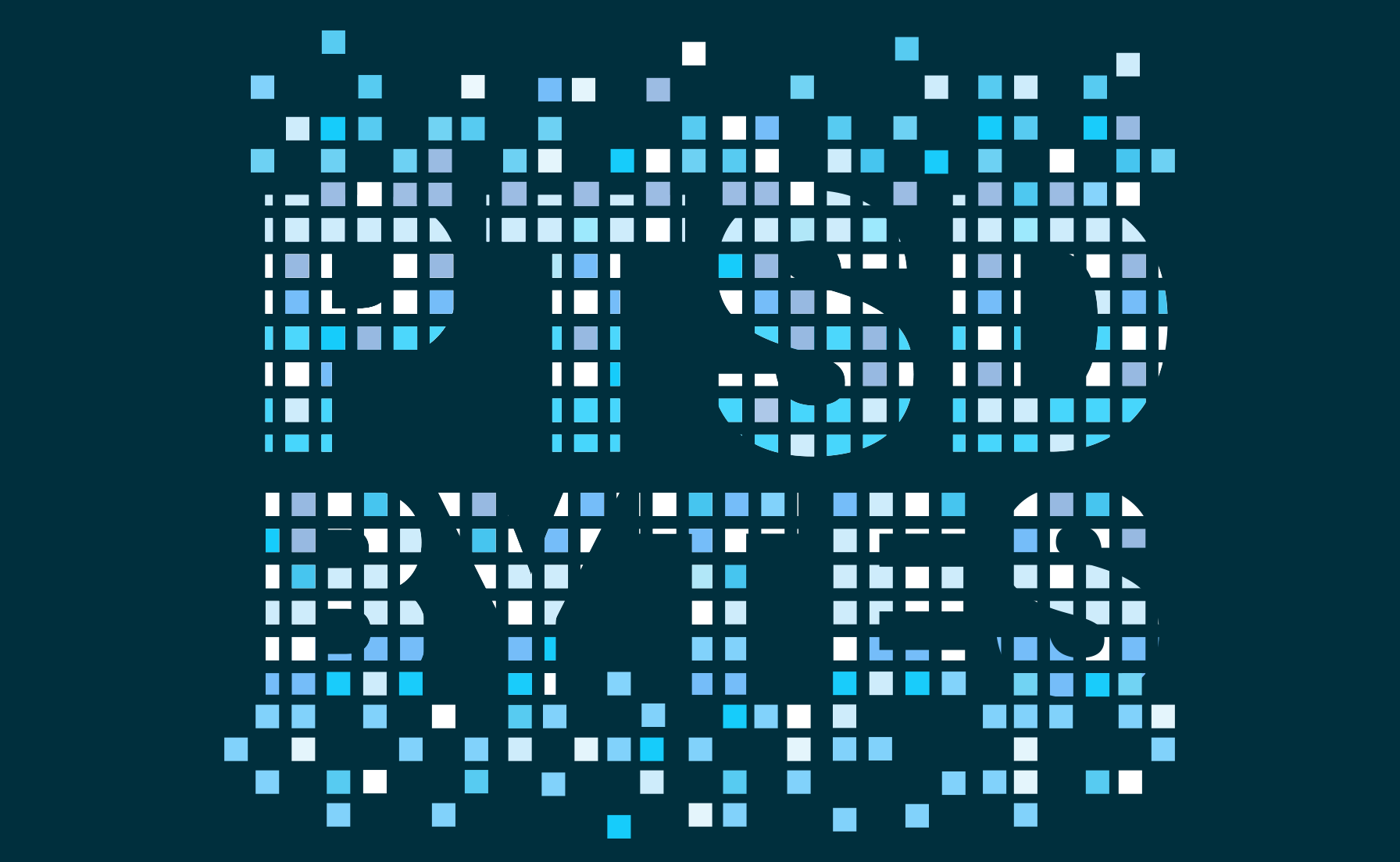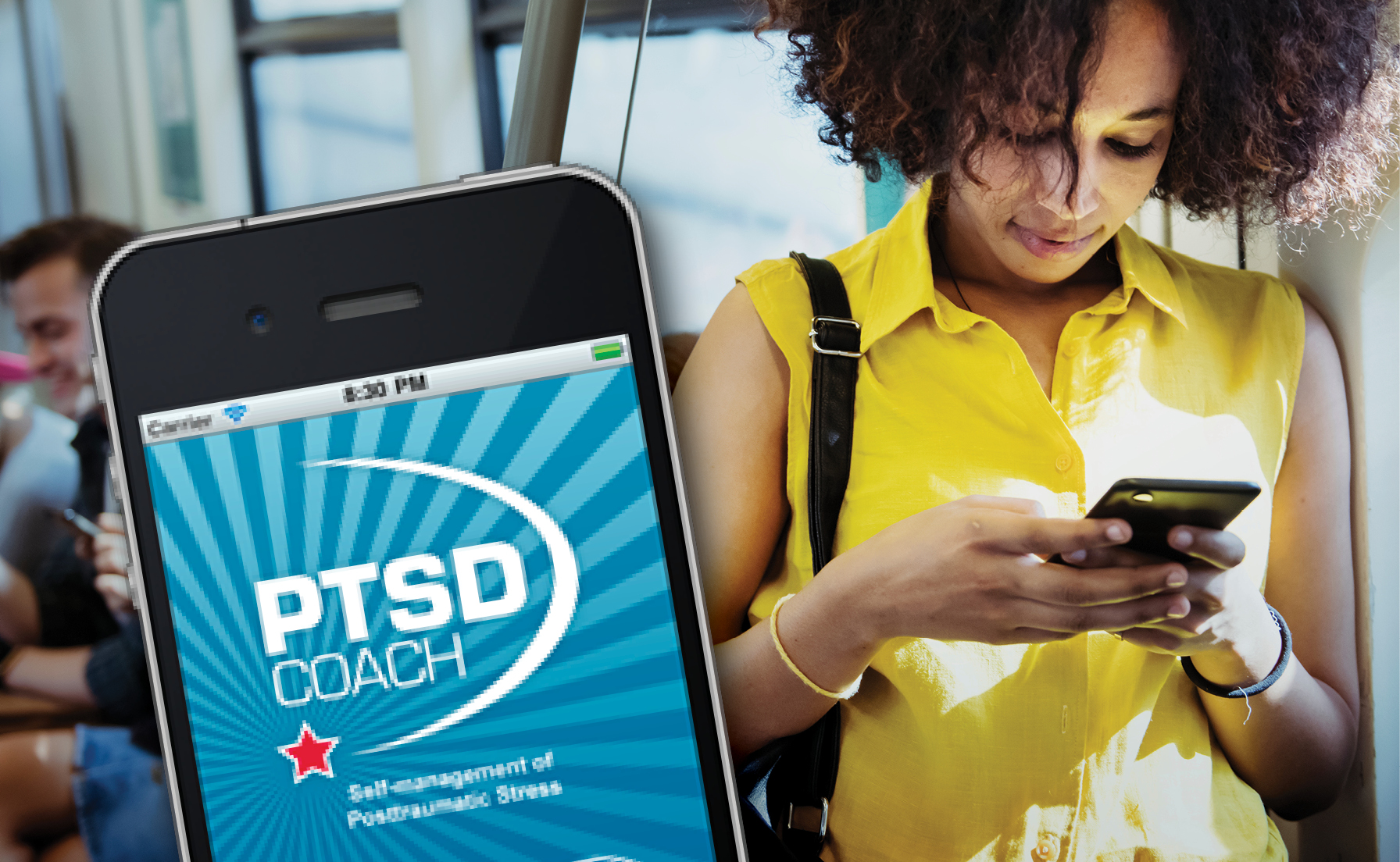PTSD: National Center for PTSD
PTSD Screening Day

PTSD Screening
You've likely heard about PTSD. And you may know that PTSD can develop after someone goes through a serious traumatic event, or trauma. But do you know what it feels like to have PTSD, or what the symptoms are?
Video
What Is a PTSD Self-Screen?
Learn how taking a PTSD self-screen can help you move forward with recovery.
Why take a self-screen?
Taking a PTSD self-screen can help you learn if your feelings and behaviors are related to PTSD. Things that bother you now or keep you from doing things you want or need to do could be related to a trauma in your past. You're not alone, and there are PTSD treatments that work. So, why wait?
We mark June 27th as PTSD Screening Day to spread the word about self-screening. That said, you can take the screen any time. Our goal is to help you get the treatment you deserve. If you are concerned about someone else, you can share the PTSD self-screen with them.
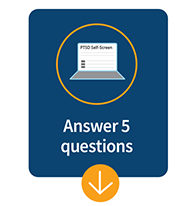
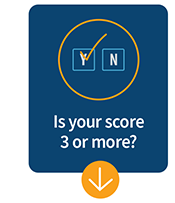
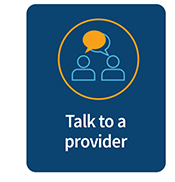
Answer 5 Questions
The first step is to find out if PTSD could be the issue. A self-screen is a few yes-or-no questions that ask about how you've been feeling in the past month, no matter when your trauma happened.
Is your score 3 or more?
After you complete the self-screen, you will get a score (of 0-5). This score is not a diagnosis. Your score will help a trained provider talk with you about next steps. If you score 3 or more, it's likely you have PTSD. If you score 2 or less, it's not likely you have PTSD.
No matter what your score, if you are having a hard time after a trauma, a health care provider can help you understand and take care of your mental and physical health.
Talk to a Health Care Provider
You can call a health care provider and say that you took a PTSD self-screen and would like to make an appointment to talk about it. If you are nervous or have a hard time describing what you're feeling, your provider can start with the self-screen questions. You can print out the self-screen and bring it to your appointment. Sharing the self-screen with your provider will help start the conversation. Your health care provider may follow up on your answers to the self-screen or ask new questions.
You're Not Alone
If you think you have PTSD, taking the self-screen is a first step to recovery. The self-screen results are not a substitute for a medical diagnosis and care. Get immediate help by phone: call or text 988 to reach the Suicide and Crisis Lifeline. If you are a Veteran, call 988 then press 1. Anyone can text 838255 to reach either help line.
Help is available 24/7:
Veterans Crisis Line or the Suicide and Crisis Lifeline
or the Suicide and Crisis Lifeline . You can also open a live, online chat on these websites.
. You can also open a live, online chat on these websites.
You May Also Be Interested In













